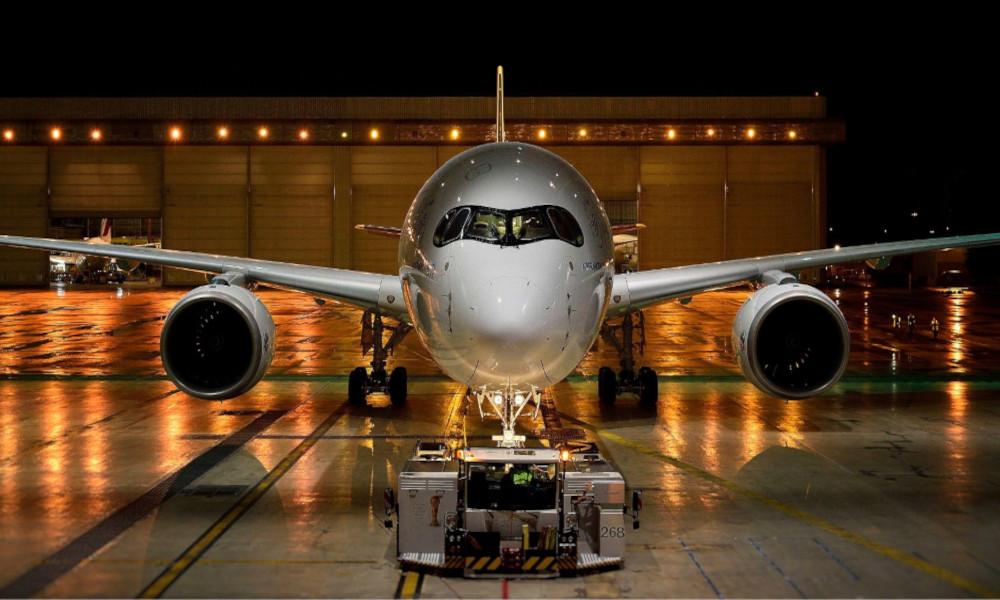
The mooted Air France-KLM and Airbus joint venture for the supply of Airbus A350 aircraft parts is targeting better component supply to operators of the widebody aircraft against a backdrop of global supply chain challenges.
The 50-50 JV, announced earlier this month with both parties entering the exclusive negotiation stage, will offer supply chain management, parts repairs and the creation of a worldwide pool of aircraft components. Air France-KLM’s MRO unit, Air France Industries and KLM Engineering & Maintenance (AFI KLM E&M), will work with Airbus in the JV. Once formalized, operations are expected to begin in the first half of 2024.
Benjamin Moreau, senior vice president for strategy and business development at AFI KLM E&M, says it targeted the A350 program as it saw a “good complimentary approach” with Airbus, given the MRO's existing capabilities relating to the aircraft program. The French-Dutch company services the aircraft from facilities in Paris and Amsterdam and has logistics centers located in the U.S., China and Singapore. Working alongside Airbus’ network of global logistics centers, Moreau says both parties combining their networks for the program will enable them to provide parts to airlines more effectively.
The A350 parts services will be open to third-party operators in addition to servicing Air France-operated A350 aircraft. The partnership will involve the transfer of components belonging to both partners into the JV's pool, and the split of this is still under discussion between both parties.
Moreau says the commercial aftermarket requires solutions in general, given the level of demand rising annually from the market and the pressures emanating from global supply chain constraints. “This is putting a lot of pressure on airlines, MROs and OEMs, and we decided that we needed to bring more solutions to the market,” he says.
Overall, Moreau feels the A350 program is somewhat less affected by global supply chain challenges in comparison to other aircraft programs, but there remains a high level of disruption in getting parts at the right time. “That’s true for piece parts that we buy from OEMs and that’s true also when we subcontract parts to OEMs or other players on the market,” he adds.
Ultimately, it is parts supply rather than a lack of capability or capacity that is driving the JV plans, Moreau says. “It's more a matter of providing the best for the airlines. How could we improve further on the service levels delivered to airlines so that their operations on the A350 are smooth and benefit from the good combination of an airline MRO and an airframe manufacturer on the other side?”
Moreau adds that in addition to the ongoing negotiations between AFI KLM E&M and Airbus, both parties are working on gaining approvals from antitrust authorities and regulatory bodies.
Aviation Week Intelligence Network Commercial Aviation 2023 Fleet & MRO Forecast data projects a compound annual growth rate of 9.5% from this year through to 2032 for the A350 program. A350 MRO demand for that 10-year period is predicted to stand at $43.9 billion.





